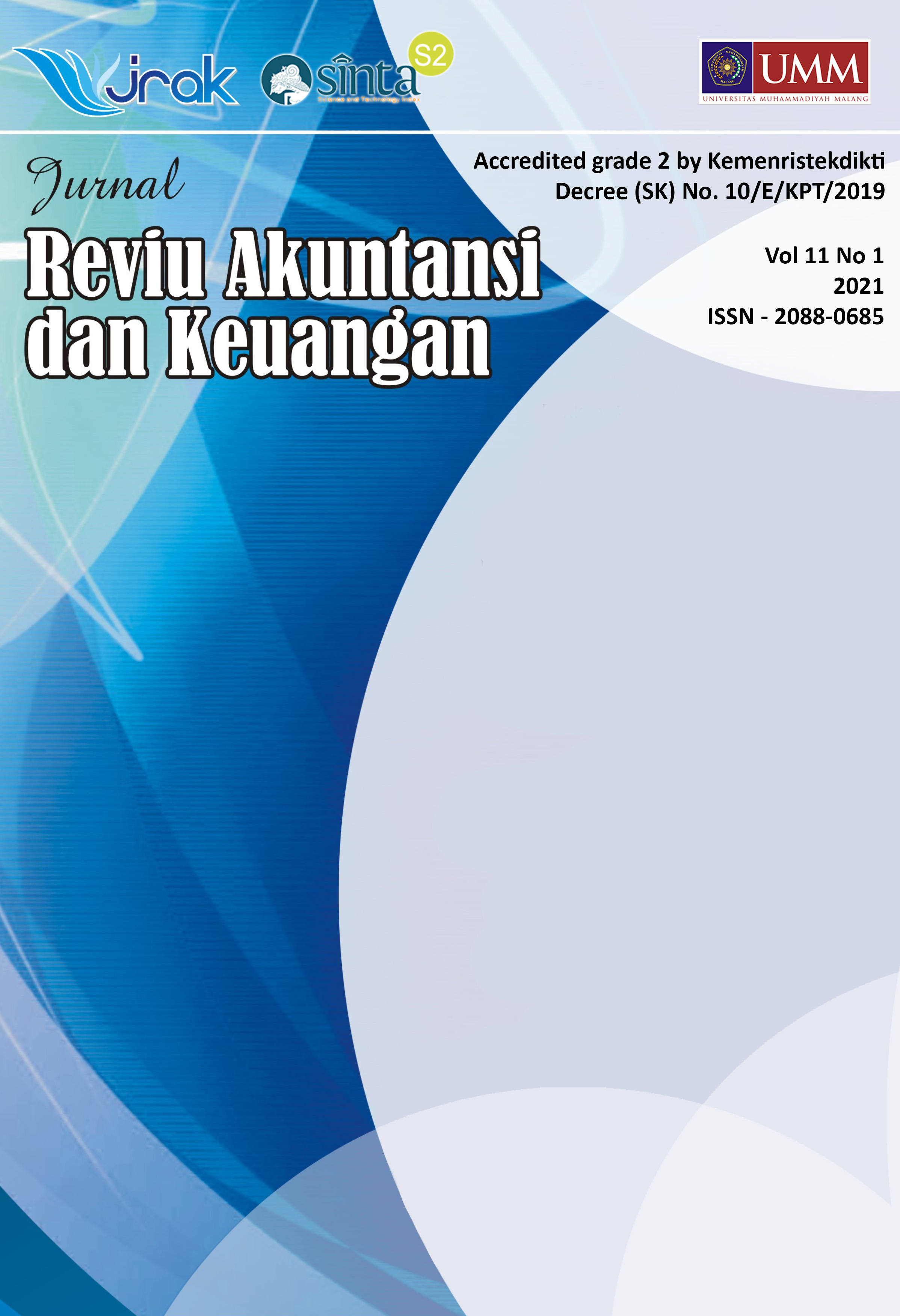Can Fraud Diamond Affect Fraud Financial Statement In Sharia Commercial Banks?
DOI:
https://doi.org/10.22219/jrak.v11i1.16256Abstract
This research aims to obtain empirical evidence of the effect of fraud diamond (pressure as proxied by financial stability, opportunity which is proxied by effective monitoring, rationalization which is proxied by total accruals, and proxied capability by change of directors) on financial statement fraud at Islamic Commercial Banks. The population in this study were banking companies that were on the list of Islamic Commercial Banks. Then the sample was taken using purposive sampling technique. The research used logistic regression because the dependent variable is a dummy variable. The results of this research indicate that the pressure variable has no effect on financial statement fraud. Opportunity variable has a negative effect on financial statement fraud. Then, the rationalization variable has a negative effect on financial statement fraud. And the capability variable has no effect on financial statement fraud. The results of this study are expected to be useful for companies, especially banking, as a material for consideration in preventing fraud on financial statements.
Downloads
Downloads
Published
Issue
Section
License
Copyright (c) 2021 Fernando Africano, Ridandy Isrodinata, Dinnul Alfian Akbar

This work is licensed under a Creative Commons Attribution 4.0 International License.

Jurnal Reviu Akuntansi dan Keuangan is licensed under a Creative Commons Attribution-NonCommercial-ShareAlike 4.0 International License.
Authors who publish with this journal agree to the following terms:
- Authors retain copyright and grant the journal right of first publication with the work simultaneously licensed under a Creative Commons Attribution-NonCommercial-ShareAlike 4.0 International License that allows others to share the work with an acknowledgement of the work's authorship and initial publication in this journal.
- Authors are able to enter into separate, additional contractual arrangements for the non-exclusive distribution of the journal's published version of the work (e.g., post it to an institutional repository or publish it in a book), with an acknowledgement of its initial publication in this journal.
- Authors are permitted and encouraged to post their work online (e.g., in institutional repositories or on their website) prior to and during the submission process, as it can lead to productive exchanges, as well as earlier and greater citation of published work (See The Effect of Open Access).










